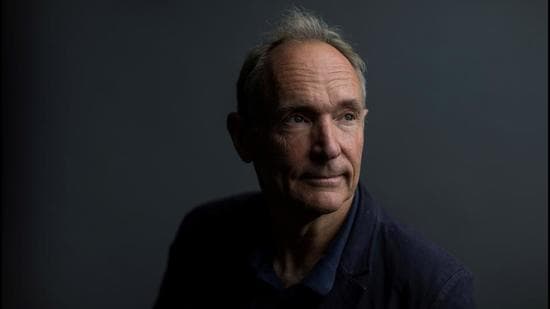30 years ago, the world discovered the web. And life changed
The events that led to the development of the web, received little fanfare then, but would increasingly be mentioned with these epochal events in the digital age
In March 1989, Tim Berners-Lee, a young software engineer working in the European Organization for Nuclear Research, CERN submitted a proposal titled Information Management to his superiors, meant for scientists to document and share their work through a network.

The initial proposal received a lukewarm response with his boss Mike Sendall noting on its cover – vague but exciting. Though not accepted as an official CERN project, Tim Berners-Lee did get some time allotted later next year to work on his idea which was refined and renamed as the WorldWideWeb project.
Within a few months, the language, protocol, and rules for data transfer in the network including HTTP and HTML that are still the foundations of the web were developed. Soon afterwards, the web server and a browser were devised.
On August 6, 1991, the world’s first website was launched. It was dedicated to information on the WorldWideWeb project. Berners-Lee did not patent his invention. Instead, he offered it as royalty-free software, and invited those outside the CERN community to join and collaborate on the web community.
Also Read | IT Rules: Bombay HC stays 2 clauses, says people would be starved of liberty of thought
The internet, which had started as a United States defence project in the 1960s, had already connected millions of computers by then through which files and even the first forms of e-mails were exchanged. However, the web resulted in an explosion of the digital space.
The years from 1989 to 1991 had a fair share of momentous events including the fall of the Berlin wall that resulted in the unification of Germany, the dissolution of the Soviet Union that restructured the world order with the United States as the lone superpower, and economic reforms in India which have unshackled our potential towards becoming an economic powerhouse. The events that led to the development of the web, received little fanfare then, but would increasingly be mentioned with these epochal events in the digital age.
Currently, there are over 1.8 billion web pages, and 4.8 billion internet users. The initial web pages were just pinboards of information. Various services were integrated with time. The advent of smartphones and higher-speed internet accelerated digital transformation. Social media platforms and aggregators exponentially increased the capacity to form digital communities and markets.
The world’s largest financial, health and education service providers, shopping spaces, publishers are all now from the digital realm. Indeed, five of the six largest corporations in the world are from the tech sector. They derive the bulk of their value from the internet. Their cumulative market cap is over $8 trillion which would make them the third-largest economy in the world by themselves.
None of this would have been possible without an altruistic web founder’s decision 30 years ago to gift the world its open-source code that enabled anyone with a computer and an internet connection to create a browser or webpage on their own.
Led by technologies including 5G and quantum computing, we are on the cusp of a new tech wave. Data has already become the engine that drives the digital economy. Big tech firms and the State are harvesting terabytes of data and are locked in power struggles across the world over rights to be the gatekeepers of the internet and of innovation.
Meanwhile, the interests of the people who contribute most of the data have become secondary. There are several ongoing projects across the world attempting to change this.
Blockchain technology would enable micropayments to every person who provides value on the internet. This could make the digital economy fairer and more redistributive. Berners-Lee himself is working on an open-source web decentralisation project with MIT, called Solid, that enables individual internet users to control the access of data and content they generate.
The success of some of the projects would transform the internet as we know it. It would become participatory and democratic. The balance of power will then, hopefully, shift towards the biggest drivers and value creators in the digital space, the people.
Anil K Antony is a tech entrepreneur, public policy commentator and works on Congress’s digital initiatives
The views expressed are personal
All Access.
One Subscription.
Get 360° coverage—from daily headlines
to 100 year archives.



HT App & Website






